Environmental Public Health Research Group
The overall aim of the Environmental Public Health research group is to improve quality of life. Our work spans the globe with local projects here in Wales together with partnership projects in Africa and the Middle East. We cover a wide range of environmental issues including: Malaria prevention; water sanitation; working conditions among industrial workers and bioaerosol exposure and collaborate with local/national governments and a number of industrial partners.
Research Areas
Using simple methods to reduce Malaria incidence in rural Africa
Malaria is a major public health problem, particularly in Africa. According to the
World Health Organization (2015), Uganda has the third highest incidence of annual deaths from Malaria in Africa, with the disease being endemic in 95% of the country. Our group have been based in the Wakiso district of Uganda since 2001. We have trained a number of community health workers (CHWs) to equip them with knowledge about Malaria prevention that can be passed onto different communities. For example, mosquitos tend to enter houses after 6 pm, therefore CHWs advise local people to keep their doors closed after 6 pm to prevent the majority of mosquitos entering. The use of CHWs has enabled our help and advice to reach over 30 villages.
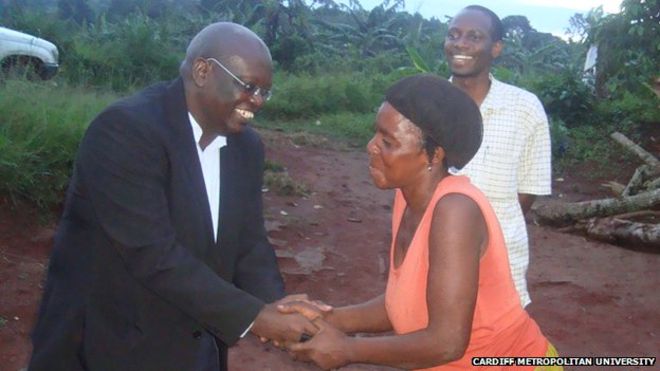
We have also made attempts to reduce the density of mosquito populations around houses by clearing bushes within a 2 km radius of the village where mosquitos tend to shelter during the heat of the day. Additionally, we have set up "Demonstration Sites" within different villages where local people can go to learn how to install insecticide-treated mosquito nets and mosquito proof their homes, thereby overcoming illiteracy barriers and helping to improve knowledge of Malaria prevention at ground level.
Africa Partnership Initiative (API)
The aim of the API is to provide opportunities, through collaboration, to further develop the use of appropriate
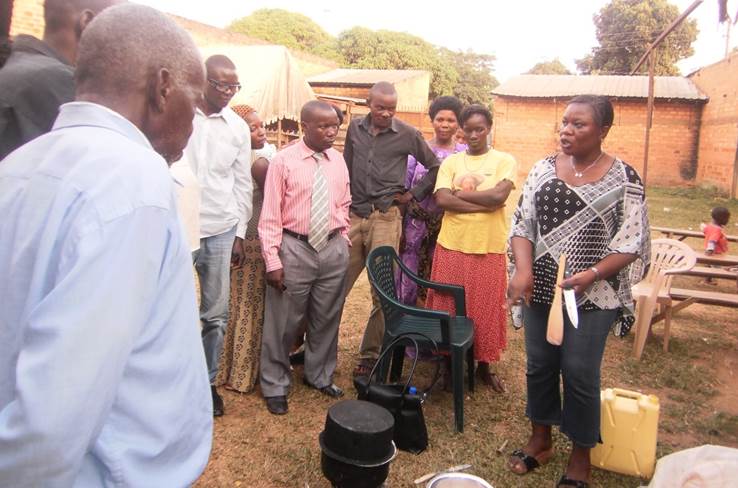 and relevant technology and community resources as a basis to promote and develop projects with African countries. In addition to the work detailed above on an integrated approach on Malaria prevention and control, we are also working on:
and relevant technology and community resources as a basis to promote and develop projects with African countries. In addition to the work detailed above on an integrated approach on Malaria prevention and control, we are also working on:
the effects of water sanitation and hygiene on selected health outcomes among pupils in schools
evaluating working environment conditions among oil, gas, farm and cement workers
exploring ecological construction techniques such as the use of rammed earth for building houses
Health and wellbeing of Firefighters
The primary objective of this work is to understand institutional structures and to ascertain knowledge, attitudes and practices of frontline firefighters as well as leadership practices among senior officers. By undertaking needs assessments and comprehensive health screening, we are able to understand current practices, levels of health and fitness of staff and how they can be improved.
Effects of land reclamation on marine life
Gaining land from bodies of water, the ocean and coastal wetlands and shores is referred to as land reclamation. By working with six stakeholder groups, the study aims to evaluate the effects of land reclamation on marine life in coastal regions. We can then recommend strategies that may help reduce the negative impacts of land reclamation.
Water conservation strategies for the reuse of non-clinical non-potable water for hospital outdoor landscapes in arid climates
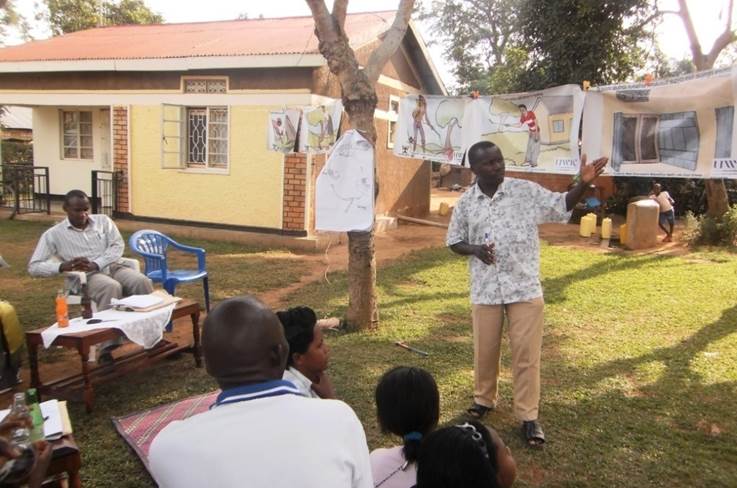 In collaboration with
Dr John Littlewood (Cardiff School of Art and Design), the aim of this work is to measure the impact of using on-site alternative water sources in a healthcare setting to alleviate the use of desalinated potable water. This in turn reduces energy consumption, capital cost investment and carbon emissions. So far, we have developed three interventions: using food waste to generate organic biological waste; enhancing the soil quality; and monitoring the quality and quantity of condensate water.
In collaboration with
Dr John Littlewood (Cardiff School of Art and Design), the aim of this work is to measure the impact of using on-site alternative water sources in a healthcare setting to alleviate the use of desalinated potable water. This in turn reduces energy consumption, capital cost investment and carbon emissions. So far, we have developed three interventions: using food waste to generate organic biological waste; enhancing the soil quality; and monitoring the quality and quantity of condensate water.
Centre for Health Safety and Environment; Bioaerosol Research
The Centre for Health Safety and Environment (CSHE) is the focal point for delivery of Research & Enterprise activities by academics from the occupational and environmental public health discipline area, and we undertake a broad range of research and enterprise activities.
The bioaerosol research group, led by Dr Peter Sykes, has a specific interest in occupational exposures to bioaerosols, particularly in the waste treatment industry. The aim of the group is to develop an understanding of risk factors so that evidence-based risk controls and risk mitigation measures can be established. We are currently characterising worker exposure levels to bioaerosols with a view to understanding the exposure scenarios and activities that may lead to elevated exposure levels, and hence, occupationally-related respiratory disease. In addition to our bioaerosol research, we also conduct research into: the risk associated with organic dust exposure, understanding endotoxin exposure scenarios and its correlation to organic dust, the efficacy of risk control measures and risk assessment methodologies, and cab filtration protection factors.

Group Members
 |
 |
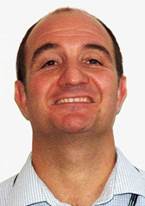 |  |
Professor of
Environmental Health | Dr David Musoke, Makerere University | Associate Dean (Enterprise) and Principal Lecturer | Research and
Consultancy Officer |
Collaborators
Internal
Professor Keith Morris, Professor of Statistics and Bioinformatics
Dr John Littlewood, Cardiff School of Art and Design
External 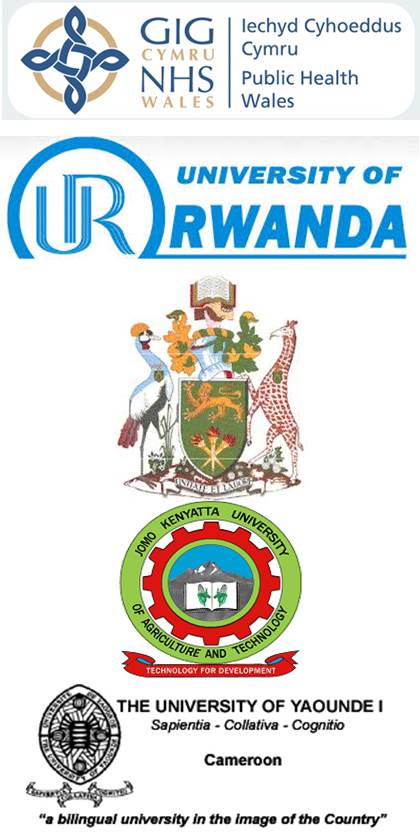
Dr Daniel Thomas, Public Health Wales
Professor Bernard Nyende, Jomo Kenyatta University of Agriculture and Technology
Professor Nzioka Muthama, University of Nairobi
Professor JK Nganga, University of Nairobi
Dr Muhindi Wanjugu, Pan African Thoracic Society
Professor Wilfred Mbacham, University of Yaoundé 1, Cameroon
Professor Kato Njunwa, University of Rwanda
Funding
Department of Trade and Industry: "Design and development of next thermal desorption products" £150,000.
WORD and Cardiff Council: "The Riverside housing project on how housing renovation would affect residents' health and indoor air quality" £150,000.
Department of Health, MRC and Department of the Environment, Transport and the Regions (DETR): "Effects of relieving traffic congestion on pollutant exposure and respiratory morbidity" £98,000.
Department of Health: "Provision of a national focus for chemical incidents" £990,000.
Department of Health: "A study of activity on public health effects of environmental chemicals" £10,000.
Torfaen Children Health Study: "The effect of particulate air pollution on the health of children living near to an area of derelict land that was to undergo reclamation involving open cast coal extraction" £50,000.
WORD: "Wales Equality and Diversity in Health and Social Care (WEDHS)" £240,000.
European Grant: Led by the All Wales Ethnic Minority Association and eight other partners on a project to improve the economic situation of Black and Minority Ethnic (BME) communities throughout Wales. Professor Karani was responsible for one of the five themes; empowering the BME communities through activities of training in environment, health, capacity building and networking. £2.5 million.
Key Publications
Musoke D.,
Karani G., Ndejjo R., Okui O., Musoke MB. Experiences of households using integrated malaria prevention in two rural communities in Wakiso district, Uganda: a qualitative study.
Malaria Journal. 2016 Jun; 15.
Musoke D.,
Karani G., Ssempebwa JC., Etajak S., Guwatudde D., Musoke MB. Knowledge and practices on malaria prevention in two rural communities in Wakiso district, Uganda.
African Health Sciences. 2015 Jun; 15 (2): 401-12.
Atkinson J., Littlewood J.,
Karani G., Geens A. Wales' deprived dwellings energy and carbon cuts from Arbed I.
Journal of Engineering Sustainability. 2016.
Sykes P., Morris RH.,
Allen JA., Wildsmith JD., Jones KP. Workers' exposure to dust and ß-(1-3) glucan at four large-scale composting facilities.
Waste Management. 2011 Mar; 31 (3): 423-30.
Sykes P., Jones KP., Wildsmith JD. Managing the potential public health risks from bioaerosol liberation at commercial composting sites in the UK: An analysis of the evidence base.
Resources, Conservation and Recycling. 2007 Dec; 52 (2): 410-24.
